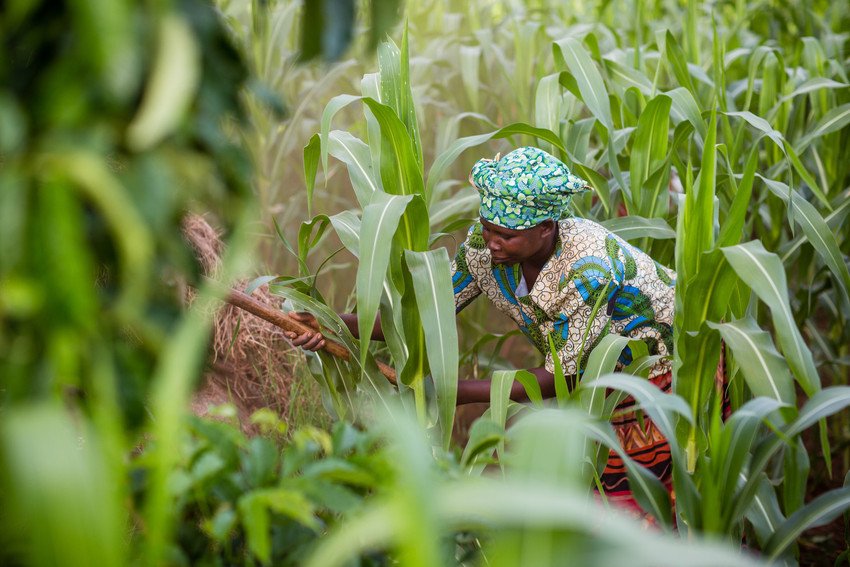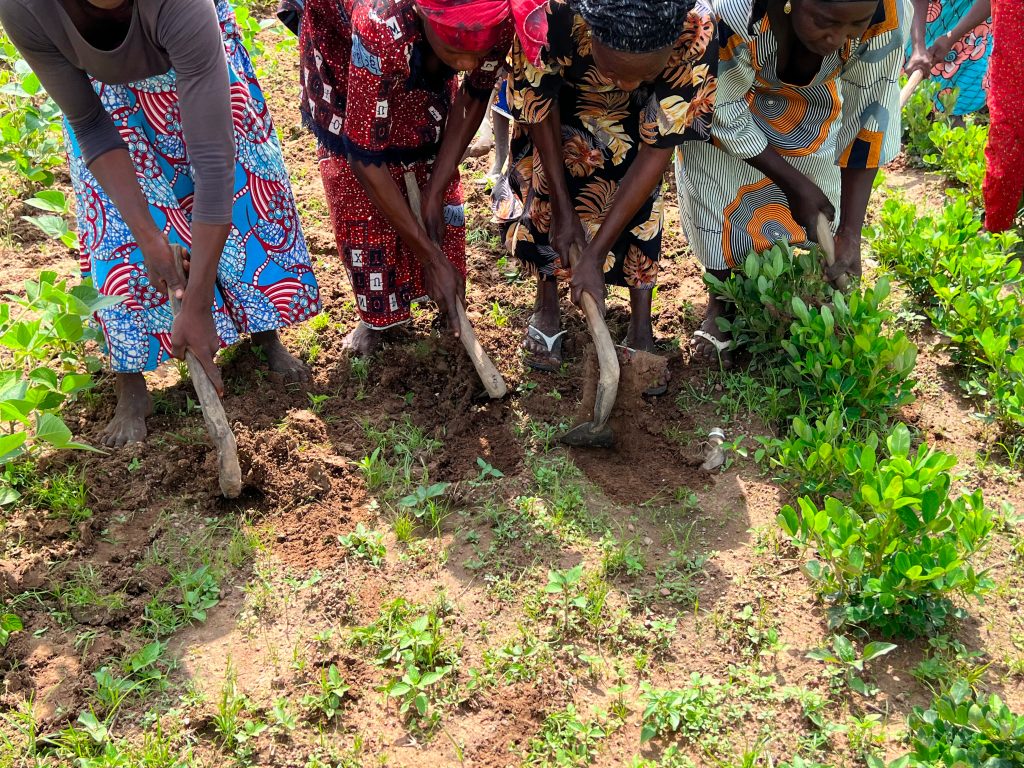We are pleased to share the 2021 Nuru Collective Annual Report with you. During 2021, amid an ongoing pandemic, Nuru witnessed farmers building their resiliency, leaders rising to meet challenges, and barriers being broken down for the most marginalized.
Farmers earned more.
In 2021, Nuru farmers made nearly 75% more money than they did in 2020. In other words, farmers earned, on average, 21 months of income in just one year. As farmers are making more money, they’re able to meet both today’s needs and save for the future. One woman farmer in Ethiopia noted, “I used some of the gained profit to buy food for my family. I used the remaining to purchase clothes for my children and a goat.” She represents just one of the more than 3,600 women farmers Nuru is reaching in Ethiopia alone.
Leaders rose to the challenge.
We saw leaders rise up and choose to continue learning. That same woman farmer noted, “I serve as a chairperson for the women’s group in our kebele and was also recognized as one of the women model farmers.” Simultaneously, in Kenya, cooperative board members’ committed their time and energy to learn these new skills amid months of uncertainty, in addition to leading their cooperatives–a true testament to the board members’ perseverance. Amid the stress of continuing to navigate COVID-19, 9 out of every ten cooperative board members achieved computer proficiency for their business operations and management. They achieved this by passing the computer and digital literacy courses offered by Nuru Kenya in partnership with the Nuru Regional Training College (NRTC).
Women saw barriers come down.
As leaders rose up, we saw barriers come down. In Nigeria, Nuru is setting a standard for eliminating barriers for women farmers. Women outnumber men in the farming workforce across Africa. In the average community, if there are 10 people farming, 7 of those people are going to be women. However, of those 7 farmers, it is unlikely that even one of those women will have access to necessary agricultural inputs and extension services. The inequality is astounding. But, Nuru is flipping the script in Nigeria. For every 10 farmers registered with Nuru Nigeria, 7 of those farmers are women and each of them has access to the agricultural extension services that most women across the continent cannot access.
The Nuru Collective had achievements worth celebrating.
As most events have resumed and much of our lives look like those pre-pandemic days, some struggles may feel far behind us. But as you join us in reflecting on the accomplishments of 2021, consider this: we all were in the thick of COVID-19. Vaccines were (and continue to be) distributed unfairly, shutdowns remained in place, and the death toll continued to climb at a gut-wrenching pace. The world was struggling to cling to any sense of hope. And yet, in rural farming communities across Kenya, Ethiopia, and Nigeria, we saw endless reasons to be hopeful despite the hardships.
The Nuru Collective is pleased to celebrate the growth, learning, and ongoing pursuit of a more equitable world that happened over the course of 12 pivotal months. Please join us in celebrating the incredible achievements of Nuru’s local leaders and the farmers who demonstrated resilience amid staggering challenges.
Click here to read more about what you made possible in 2021.




